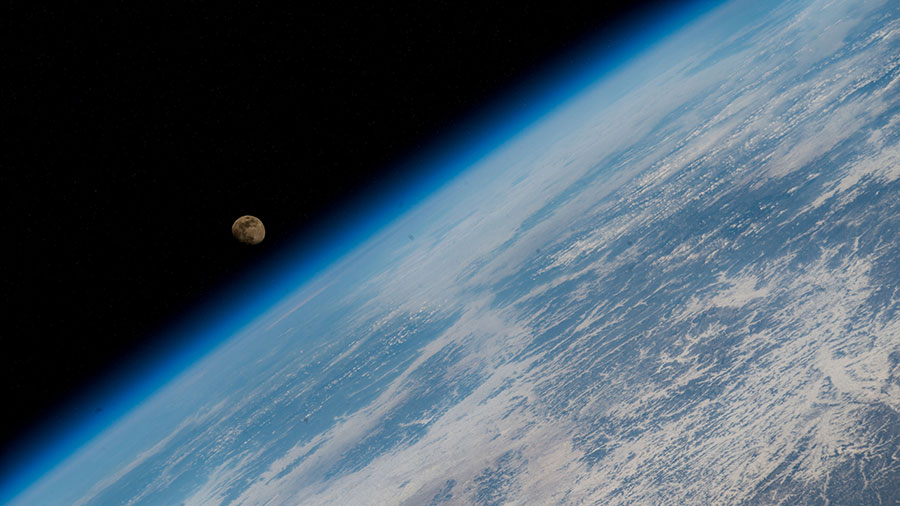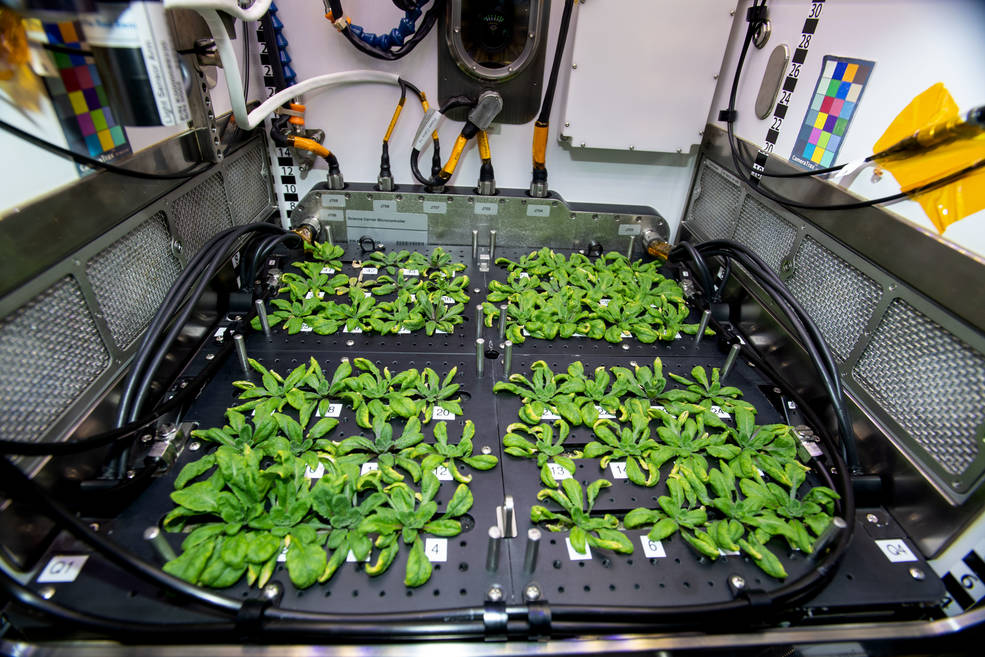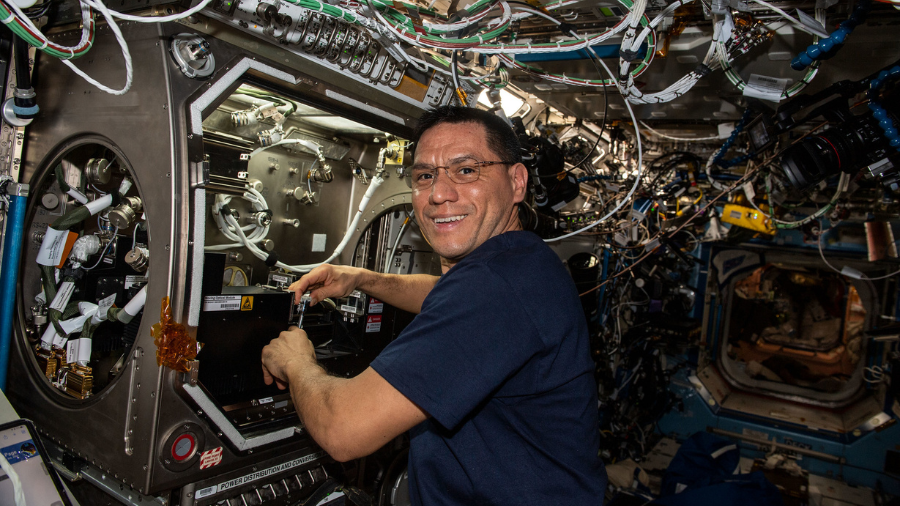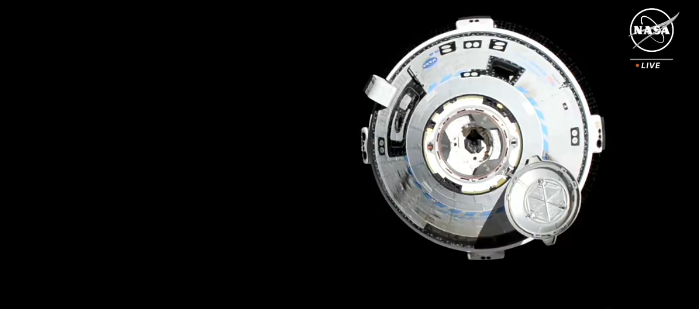
The Expedition 68 crew is looking forward to a delivery mission that will arrive at the International Space Station this weekend. Meanwhile, space science and orbital plumbing took up the orbital residents’ day as well as more cleanup work following last week’s spacewalk.
Nearly three tons of food, fuel, and supplies, is on its way to replenish the seven residents living aboard the orbital outpost. The ISS Progress 83 (83P) resupply ship launched at 1:15 a.m. EST on Thursday and is orbiting Earth racing toward the space station. The 83P will automatically dock to the Zvezda module’s rear port at 3:49 a.m. on Saturday beginning a six-month stay at the station. NASA TV will cover the space freighter’s arrival live on the agency’s app and website.
NASA Flight Engineer Josh Cassada began his day with brain research attaching sensors to his head and chest to measure his blood flow for the Cerebral Autoregulation investigation. The research takes place inside the Kibo laboratory module and explores how the brain regulates blood pressure in weightlessness.
Astronauts Nicole Mann of NASA and Koichi Wakata of the Japan Aerospace Exploration Agency (JAXA) kicked off their day collecting blood and urine samples for processing and stowage. The duo, with Cassada, then took turns cleaning cooling loops inside a pair of Extravehicular Mobility Units, or spacesuits. Cassada also serviced the emergency jetpacks that spacewalkers would use to maneuver back to the station in the unlikely event they became untethered from the station.
Wakata also worked a couple of hours inside the Kibo lab removing the water recovery system from inside the module’s multipurpose small payload rack. NASA astronaut Frank Rubio spent a good portion of his day replacing components in the Waste and Hygiene Compartment, the station’s bathroom, located inside the Tranquility module. Rubio then ended his work day tending to tomato plants growing inside the Veggie space botany facility located in the Columbus laboratory module.
Roscosmos Flight Engineers Dmitri Petelin and Anna Kikina continued researching how microgravity affects the digestive system. The duo placed electrodes on themselves and conducted ultrasound scans of their gastrointestinal system shortly after breakfast. Station Commander Sergey Prokopyev spent some time inside the Columbus lab configuring video hardware that records how clouds of highly charged particles, or plasma crystals, behave in microgravity. He then spent the rest of the afternoon in the Zvezda service module working on maintenance activities.
Learn more about station activities by following the space station blog, @space_station and @ISS_Research on Twitter, as well as the ISS Facebook and ISS Instagram accounts.
Get weekly video highlights at: https://roundupreads.jsc.nasa.gov/videupdate/
Get the latest from NASA delivered every week. Subscribe here: www.nasa.gov/subscribe




